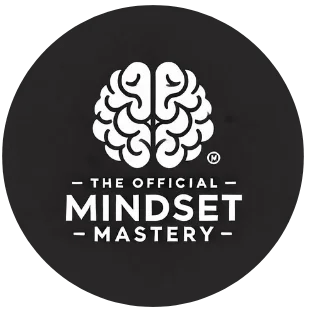As we approach the new year, many of us feel compelled to make grand resolutions. But are these declarations setting us up for disappointment? Let’s explore how to transform traditional resolutions into a framework for genuine personal growth and lasting change.
The pitfalls of traditional New Year’s resolutions
New Year’s resolutions often focus on dramatic transformations, setting unrealistic expectations that can lead to frustration. Research shows that approximately 80% of resolutions fail by February, highlighting the need for a more sustainable approach to self-improvement.
Common pitfalls include:
- Setting overly ambitious goals
- Focusing solely on outcomes rather than processes
- Neglecting to plan for obstacles and setbacks
- Failing to align goals with intrinsic values
These issues can create a cycle of disappointment and self-criticism, ultimately hindering personal growth instead of fostering it.
Reframing resolutions: The year-long syllabus approach
Instead of making rigid resolutions, consider adopting a year-long syllabus for personal development. This approach, inspired by academic planning, offers structure while maintaining flexibility. It emphasizes the journey of growth rather than fixating on a single endpoint.
Key elements of a year-long syllabus include:
- Clear learning objectives
- Actionable steps and milestones
- Regular self-assessment and reflection
- Room for adjustment and course correction
By viewing the new year as an opportunity for ongoing learning and exploration, you shift from a pass-fail mindset to one of continuous improvement.
Crafting smart goals for sustainable change
To create effective goals within your year-long syllabus, employ the SMART criteria: Specific, Measurable, Achievable, Relevant, and Time-bound. This framework helps transform vague aspirations into concrete action plans.
Consider the following example:
| Traditional Resolution | SMART Goal |
|---|---|
| “I want to be healthier” | “I will exercise for 30 minutes, 3 times a week, for the next 3 months” |
The SMART goal provides a clear roadmap for progress, making it easier to track achievements and stay motivated. It also allows for flexibility, as you can adjust your goals based on your experiences and changing circumstances.
Embracing growth through reflection and adaptation
A crucial aspect of the year-long syllabus approach is regular reflection. Set aside time each month to review your progress, celebrate successes, and learn from challenges. This practice fosters self-awareness and helps you refine your goals as needed.
As author Thomas Harper notes in his book “Unlock Your Potential: A Journey to a Growth Mindset”, “True growth comes not from perfection, but from our ability to learn and adapt.” This philosophy aligns perfectly with the year-long syllabus approach, encouraging a mindset of continuous improvement rather than all-or-nothing thinking.
To support this process, consider:
- Keeping a journal to track your thoughts and progress
- Seeking feedback from trusted friends or mentors
- Celebrating small wins along the way
- Adjusting your goals based on new insights or changing priorities
By embracing reflection and adaptation, you create a dynamic framework for personal growth that evolves with you throughout the year.
Building resilience and fostering long-term success
The year-long syllabus approach not only supports immediate goal achievement but also builds resilience and fosters long-term success. By focusing on the process of growth rather than fixed outcomes, you develop skills that serve you well beyond the current year.
Developing a growth mindset is key to this process. Embrace challenges as opportunities to learn, view setbacks as valuable feedback, and recognize that effort and persistence are crucial to success.
Remember, the goal is not perfection but progress. As you work through your year-long syllabus, you’ll likely encounter obstacles and moments of doubt. These are not signs of failure but natural parts of the growth process. By reframing these experiences as learning opportunities, you build resilience and develop a more balanced approach to personal development.
In 1990, psychologist Carol Dweck introduced the concept of growth mindset, which has since revolutionized how we approach personal and professional development. By adopting this mindset within your year-long syllabus, you set yourself up for sustainable success and fulfillment.





